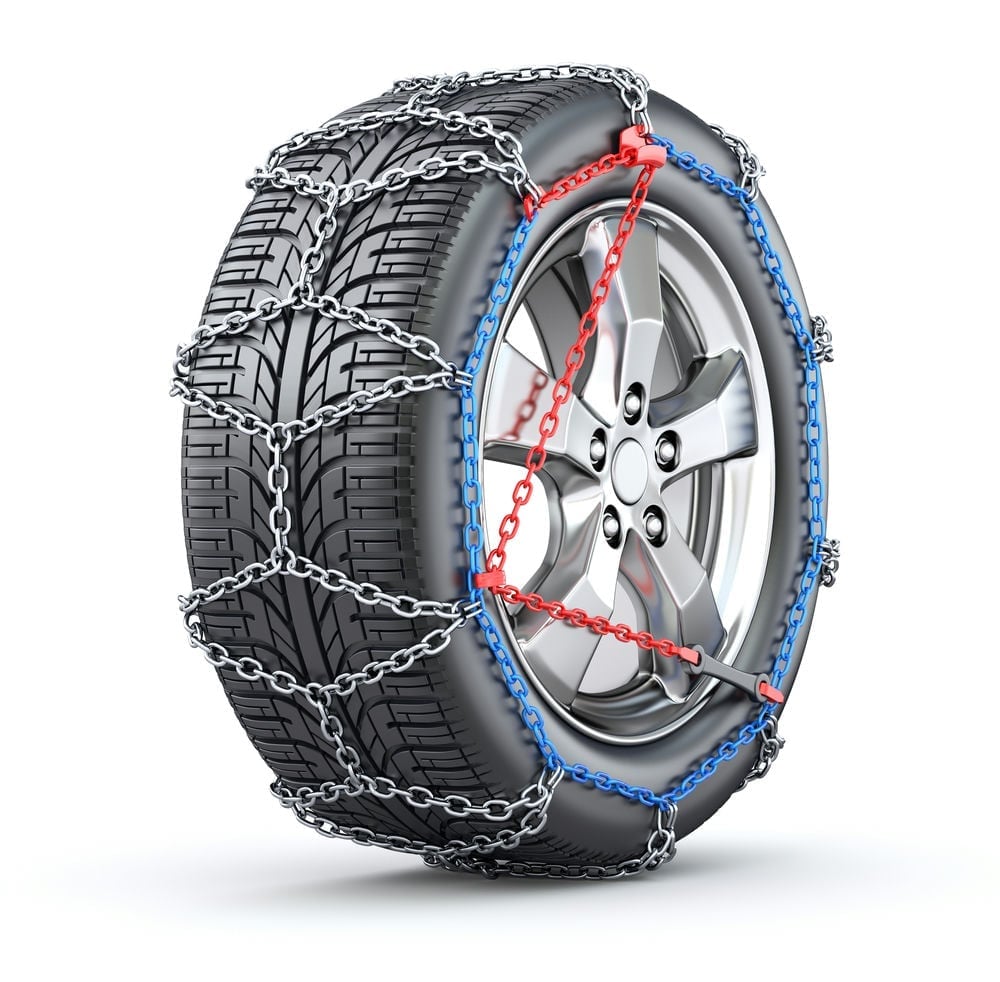
Snow chains help when snow and ice are on the road but could damage your
tires if you're not careful.
Snow chains damage tires if they are loose, installed wrong, or
misused. However, if you install them tightly and use them only over
snowy and icy roads, a snow chain will not cause tire damage.
Let's learn more about the damage that snow chains can cause.
 A tire chain properly installed on a tire.
A tire chain properly installed on a tire.
Do Snow Chains Mess Up Your Tires?
If installed and used correctly, snow chains do not mess up your tires.
However, improper installation and usage may cause snow chains to
penetrate the wheel, cause uneven tire wear, damage the wheel well, or
rip off the brake line.
Each snow chain model comes with an owner's manual describing when and how
you should use it. However, tire chains can damage your tires if you don't
follow the directions closely. Here is what might happen:
-
If you drive over a bare road, tire chains might slowly penetrate the
tire and cause damage to its surface.
-
Using snow chains under normal circumstances or speeding while they are
on may lead to uneven tire wear.
-
If your snow chains are loose, they may damage or knock apart the
plastic wheel wells.
-
If the tire chain becomes undone while you are driving, it might wrap
around the axle. In the worst case, it may rip off the brake line to
the wheel, disabling the car's brakes.
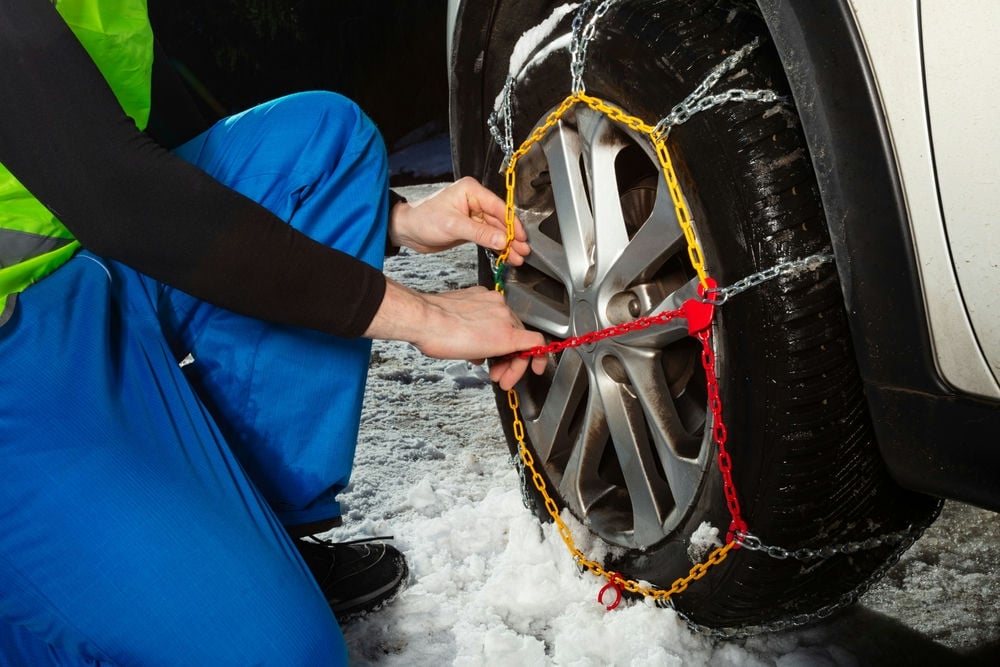 Installing tire chains is usually a relatively simple process.
Installing tire chains is usually a relatively simple process.
Do Snow Chains Mess Up Your Car?
When appropriately used, snow chains do not mess up your car. But if
they are loose or snap while driving, they might slap against sheet
metal, causing damage. Snow chains can also interfere with a car's
anti-braking system (ABS).
The snow chains around your tires must be snug and secure. The loose link
chains might slap against the sheet metal close to the tires if left loose.
They might create dents or beat the paint off the car fender.
Drivers are strongly advised against installing snow chains on vehicles
with a modern ABS. This computerized system monitors each wheel's spinning
speed in relation to the car's speed and adjusts braking to minimize
chances of skidding.
Tire chains disrupt its ability to register wheel speed, which may lead to
ABS malfunction and related damage to your car.
They also limit the speed at which your car can move and affect its fuel
economy.
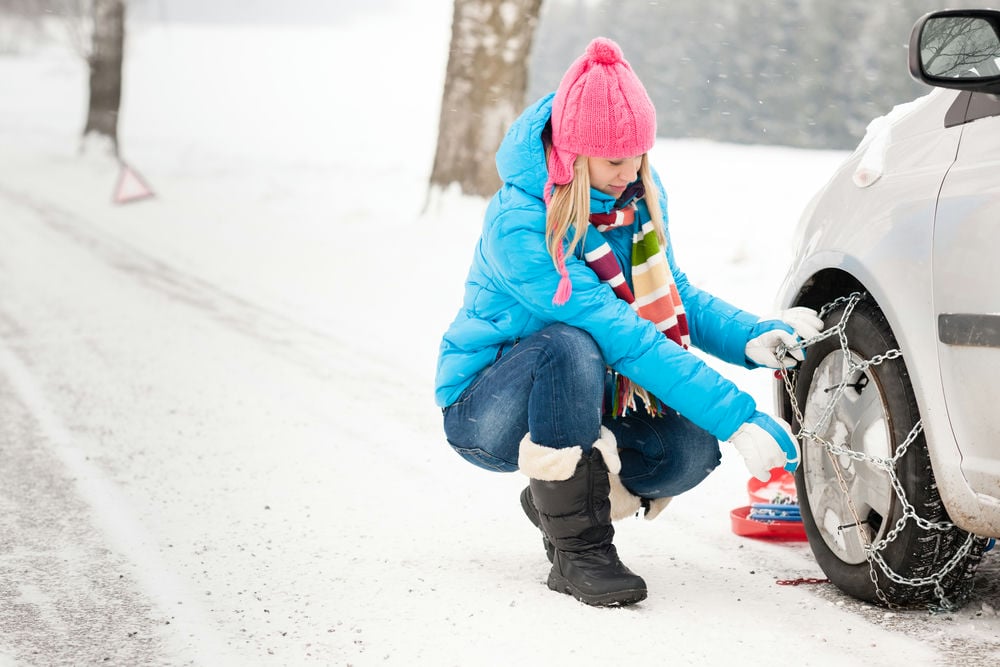 It is advisable to periodically check the tightness of the tire chains.
It is advisable to periodically check the tightness of the tire chains.
Are Snow Chains Bad For Roads?
Snow chains are not bad for the road as long as snow or ice covers it.
However, if you use them on a clear road, these chains can tear bits of
asphalt out of the road, damaging it.
Tire chains are emergency safety equipment that you should only use to
improve your traction on snowy or muddy roads. If you continue to use them
on a bare tarmac road, they will wear out quickly and cause damage to the
road surface and your tires.
Is It Better To Have Snow Chains Or Snow Tires?
Although snow chains are better than snow tires in terms of performance
in extreme conditions, snow tires will be better in most normal winter
conditions as you can drive at normal highway speeds and leave them on
all winter.
Snow chains will be better where there is deep snow on remote unmaintained
roads, perhaps in the mountains or forest.
Snow tires are better for winter driving in the city or on highways where
the roads are regularly plowed, and the main concern is traction due to
ice.
Snow tires are softer and have finer threads than all-season or summer
tires, giving them better traction in below-zero conditions. A snow tire
will have more surface area making contact with the road than a regular
tire.
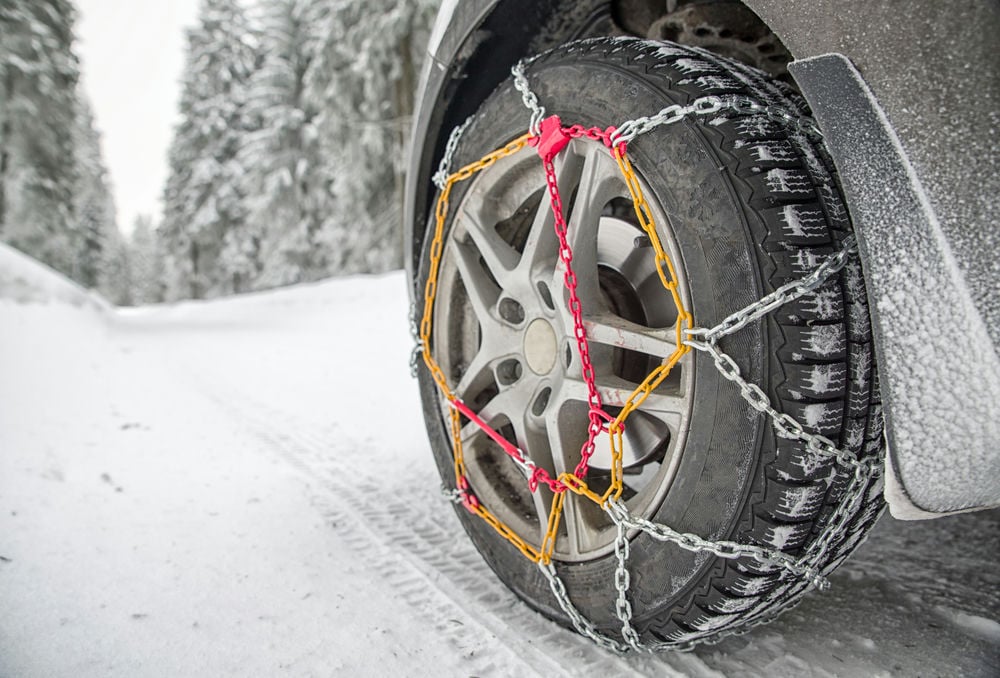 Tire chains are recommended for extreme conditions like unmaintained forest or mountain roads.
Tire chains are recommended for extreme conditions like unmaintained forest or mountain roads.
Is It Better To Have Chains On All 4 Tires?
Chaining all four tires gives you the best possible traction and
balance.
It is suggested that vehicles with front wheel drive vehicles install tire
chains only on the front tires and rear wheel drive vehicles install them
over the rear tires only.
But having them only on the front tires may result in unpredictable braking
responses. And having them on the rear wheels alone may make it difficult
for you to control the car's direction on an icy road.
For your safety, it is better to have chains on all four tires as they will
balance the car's traction and help you stay on the road.
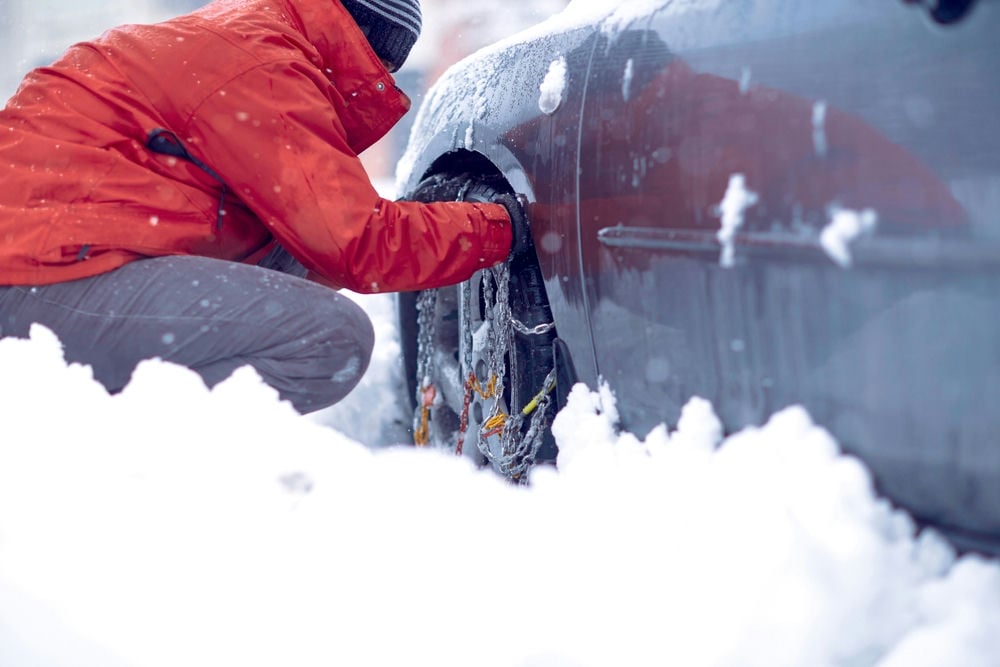 Tire chains are extremely useful in deep snow.
Tire chains are extremely useful in deep snow.
How Fast Can I Go With Snow Chains?
The maximum recommended speed for driving with snow chains is 30 mph.
It would help if you did not go any faster than this.
When driving with tire chains, you try to stay around 20 mph, not
exceeding 30 mph.
Be gentle while accelerating and braking. Driving aggressively may put too
much pressure on the chains, causing them to snap.
Conclusion
Snow chains are useful safety gear to help you safely drive on a snowy
road.
You should be very careful while installing and using these because, if
misused, snow chains can damage your car and the road.
When chaining the car's tire, you should chain all four for the best
traction and balance.
It is also essential to go slowly because putting too much pressure on tire
chains may cause them to snap and cause damage.